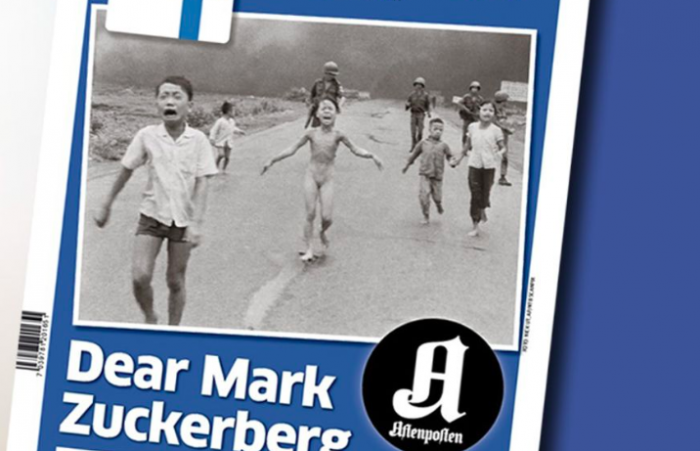
GDPR and forthcoming ePrivacy regulations around consumer data protections. Antitrust fights and fines, new taxation proposals, a continued unpleasant relationship between technology platforms and news organizations. And no respite in sight.
Karin Pettersson, Schibsted’s new director of public policy and the first to hold such a role within the Scandinavian media giant, is diving into the middle of these monumental policy changes rumbling across Europe. She’s acting as Schibsted’s unifying voice when it comes to the regulatory issues the company should be concerned with, and how it should be an active player in the space.Schibsted is best known for its newspapers, its online classifieds business, its internal tech prowess, and, increasingly, its public position as a foil to the scale and automation-focused forward march of far larger tech companies like Google and Facebook.
Pettersson, a 2016 Nieman Fellow, was previously the political editor of Swedish daily Aftonbladet. Less than half a year into her new job, she’s still working her way through the 7,000-plus-employee media company, setting up working groups and reconciling internal strategies when it comes working with — and competing with — Facebook and Google (other companies like Netflix and Amazon are more “still in the margins of our operations”).
 “Then there are questions internally such as, should we work with Google on subscriptions? In those cases, you’d get a few differing opinions, which I think is good. But the common feeling is that these companies are not our friends, as a media company, and possibly are not friends to the values we cherish either,” Pettersson told me. “From my perspective and from the company’s perspective, it’s important that we stay, on this macro level at least, consistent. What we say has to correspond with what we’re actually doing within the newspapers.”
“Then there are questions internally such as, should we work with Google on subscriptions? In those cases, you’d get a few differing opinions, which I think is good. But the common feeling is that these companies are not our friends, as a media company, and possibly are not friends to the values we cherish either,” Pettersson told me. “From my perspective and from the company’s perspective, it’s important that we stay, on this macro level at least, consistent. What we say has to correspond with what we’re actually doing within the newspapers.”
My conversation with Pettersson about her role and about Schibsted’s vision for the company’s relationship with Google and Facebook is below. It’s been lightly edited for length and clarity.
Some of the issues we’ve been working on through the spring have been around trying to think about the bigger picture: How should we compete? How do we conceive of these platform companies? Are they vehicles for the distribution of news? Are they our competitors? Are they a threat to the world order? A threat to democracy? How should we see them and how should we see ourselves in relation to them?
Of course, these are not new issues for Schibsted or any other media company. In my role, I’ll try to think about these things in the long run. Everyone everywhere else is very much caught up dealing with day-to-day business.
Some of the issues we’ve been thinking about over the spring: One is, we’ve been thinking about the processes happening in Brussels, regarding how to interpret competition law. We had all been waiting for this verdict from the EU Commissioner Vestager on the latest Google ruling. Now since I’ve been on vacation, they’ve leveled this big fine, which we had been waiting to find out about. There are other processes like this ongoing in Brussels.
Another is the question of taxation, where we see both Google and Facebook making a lot of money on national markets in advertising in Europe but paying low taxes. In our view, that creates two problems. First, it’s unfair competition, because we are paying much more tax than them, so they get an advantage over us. The other policy view is that in the long term, if this goes on and these companies take up bigger and bigger parts of the economy, it will be difficult to fund our ways of organizing our societies.
A third aspect is the monopolistic position these companies occupy in our markets: The potential harm done to the economy in terms of stifling innovation and eating up small- and medium-sized companies.
Those are just a few of the things we’re thinking about and trying to bring to the attention of politicians and to the public.
I tried to organize a group of people within the company who will work on all these issues. People focused on taxation, people focused on competition, and people working on lobbying, working with politicians, on media policy issues. I’m trying to bring together all of those people who are already thinking about public policy issues and these structural issues. These are people I use as a sounding board and work with.
Schibsted owns a lot of newspapers — the biggest ones in Sweden, two biggest newspapers in Norway, and some big regional and local newspapers in Norway. We’re market leaders in Scandinavia. From my perspective and from the company’s perspective, it’s important that we stay, on this macro level at least, consistent. What we say has to correspond with what we’re actually doing within the newspapers. We can’t say that Facebook is destroying democracy, but then have our newspapers collaborate with it very, very closely, and rely on it for traffic and distribution. I’ve created a group of people working strategically, centered around social media, from all the newspapers, to bring them together to see if what we’re doing at this point is even coherent. It’s a really good way to discuss and create a common story and understanding of why it’s important to be cautious and why it’s important to see these companies as competitors, not as our main distribution channels, nor as our friends.
I’ve been positively surprised that many people are on the same page. Obviously, things have changed in the past few years. Two, three, or four years ago, there would’ve been much bigger differences between people on their ideas of our role versus these tech giants.
The election cycles, Brexit, Trump, and all the discussions afterwards, and the problems that came to light after Cambridge Analytica, has led to more of a common understanding of the risk that these companies pose to our core mission. So it’s important we have both a strategy and be cautious.
Then there are questions internally such as, should we work with Google on subscriptions? In those cases, you’d get a few differing opinions, which I think is good. I would say, though, that the common feeling is that these companies are not our friends, as a media company, and possibly are not friends to the values we cherish either.
I haven’t met everyone in the organization yet, but I think I have a pretty good picture now of how people see the landscape, and it’s been more unified. A few years back, when you could see all these other media players like BuzzFeed — these new cool media companies who shaped their organizations around distribution through social media — that was a point at which discussions internally at our company were much more of a range of opinions. Should we go all in on distributing on social media? Is the old way of doing things dying? Should we jump head first into this new world?
Since then, so many things have happened. It’s just become clear that it’s very difficult to find a working business model even if you do everything Facebook says you should do to maximize audiences.
Our biggest titles in Sweden and Norway get so much direct traffic. We never became fully dependent on social media. At this point, the feeling is more that we made the right decision not to give away too much traffic back then, and to stick with the core strategy of keeping relationships with our readers within our control.
This is all what I’m working on now. Ideally, we would’ve had enough discussions together with all the newspapers within the organization that they would arrive at the same decision on their own. That would be my ideal. We don’t have a formal organization for these types of decisions yet. I’d hope to be involved in that.
Look, when we talk about the tech giants, we say they are our competitors. Of course there could be instances when it would be good for everyone to cooperate. For example, maybe we decide it’s on the subscriptions project. But we’d look into everything issue by issue. As our overarching view, though, we say Google and Facebook are our competitors, we need to be cautious, and we wouldn’t take their money to help develop our core products and the core of what we do.
I sometimes think of these places like banks — you can be in favor of regulations, but you also need to use their services. It’s impossible to not deal with them, to never do anything on their platforms at all. But again, it’s good to have a clear understanding of what role they play in the economy in relation to us, which is as competitors.
We have contact with a number of people in these tech organizations all the time. The discussions around GDPR, for instance, have been very intense. The problem sometimes is that there are certainly quite a number of people working at these companies based in Sweden and in the rest of Europe, but at the same time, everybody is well aware of the fact that their biggest policy decisions are made in the U.S. The contact we have at a national level is about practical things, and less so about these broader issues.
What happened is that, due in part to lobbying work from Google and Facebook — and it’s still not clear how this will all play out — there’s a risk that GDPR will instead end up giving Google more control rather than less. That’s a concern we’ve very much been involved with, and an issue we’ve been trying to raise. Now, what we have in the coming year is new policy proposals at the EU level around ePrivacy. I haven’t fully read up on the law, but we see it as even more important in terms of how companies will be regulating integrity and consumer control over personal data.
The problem at this point on the data privacy discussion is that there’s a huge asymmetry between companies and consumers. The lawmakers wanted to give the consumers more power over their own data, but it’s just impossible at this point for consumers to leverage that control or do that much. Sure, they can opt out. But there’s no proper counterforce.
These tech companies are aggregating all this data and creating a lot of money out of it. Consumers in Europe now at least have the right to opt out, and a right to know what their data is being used for. But it’s still very asymmetrical in terms of control over the data. Who can use it for making money? Who can use it for making products? It’s a long way to go until we have a healthy ecosystem that’s really protecting consumer rights, and not just around privacy, but the economic value of the data that is being extracted from them. The way it is now, it’s not completely working.